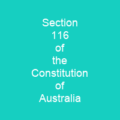Dietrich v The Queen: A Landmark Case on Legal Representation
Imagine a world where justice is blind and impartial, but what if that world fails someone who can’t afford their own defense? That’s the heart of Dietrich v The Queen, a 1992 High Court decision that changed how we view legal representation in criminal cases.
The Case: A Man Without Counsel
Olaf Dietrich (later known as Hugo Rich) found himself in this very situation. He was convicted of serious crimes but had been denied publicly funded legal assistance, leading to his appeal to the High Court. The question at hand was whether a person’s right to a fair trial includes the right to counsel when they cannot afford it.
Legal Foundations: A Right to Counsel
Dietrich argued his case on three fronts: section 397 of the Crimes Act 1958, Australia’s international obligations under the International Covenant on Civil and Political Rights (ICCPR), and precedents from the United States and Canada. The High Court had to decide if these grounds could establish a right to counsel.
Section 397 and Canadian Precedents
The court considered section 397 of the Crimes Act, which was later repealed, but found that it did not explicitly grant the right to counsel. However, they looked at cases from Canada, where similar rights were upheld. This made Dietrich’s case more compelling.
International Obligations and U.S. Precedents
The court also examined Australia’s international obligations under the ICCPR. While these obligations are important, the court noted that declaring a new right without legislative backing would be problematic. They did find support in U.S. precedents which showed that denying counsel could lead to unfair trials.
A Fair Trial: The Core of the Decision
The High Court majority found that an accused has the right to a fair trial, and courts have the power to adjourn matters where necessary to ensure this right is met. Chief Justice Mason and Justices Deane, Toohey, Gaudron, and McHugh held that any application for adjournment or stay should be granted unless there are exceptional circumstances.
Consequences of Denial
If an unfair trial results from denying adjournment, the conviction must be overturned. The court ordered Dietrich’s appeal to be granted, his conviction quashed, and a new trial scheduled. This decision set a precedent that a fair trial is not just preferable but necessary.
Controversies and Criticisms
The decision in Dietrich v The Queen has faced criticism for its practical implications. In 1995, Dietrich was convicted of three armed robberies and sentenced to 13 years in jail. After his release, he faced further charges, including the murder of security guard Erwin Kastenberger, which he was found guilty of in 2009.
Attorney-General’s Interference
In 1998, the Attorney-General asked courts to be realistic about applying principles from Dietrich v The Queen. This led to criticism that the government was interfering with judicial independence. The decision has been seen as under threat to the right to legal representation for indigent people facing serious criminal charges.
Practical Implications and Future Challenges
The practical result of Dietrich v The Queen is that courts can exert pressure on governments to provide accused persons with legal representation. However, several aspects need clarification: what constitutes ‘indigence,’ the definition of a ‘serious offence,’ and how judges should assess an accused’s ability to pay for their own representation.
The decision has been considered and upheld in contemporary trials, including Carl Williams’ case where he argued for an adjournment due to unavailability of preferred representation. Dietrich v The Queen remains a critical case that highlights the importance of fair legal processes in ensuring justice is served.

The decision in Dietrich v The Queen is a reminder that justice must be accessible and fair for all, regardless of their financial status. It underscores the importance of legal representation in ensuring trials are just and that every accused person has an equal chance to present their case.
You want to know more about Dietrich v The Queen?
This page is based on the article Dietrich v The Queen published in Wikipedia (retrieved on November 30, 2024) and was automatically summarized using artificial intelligence.







